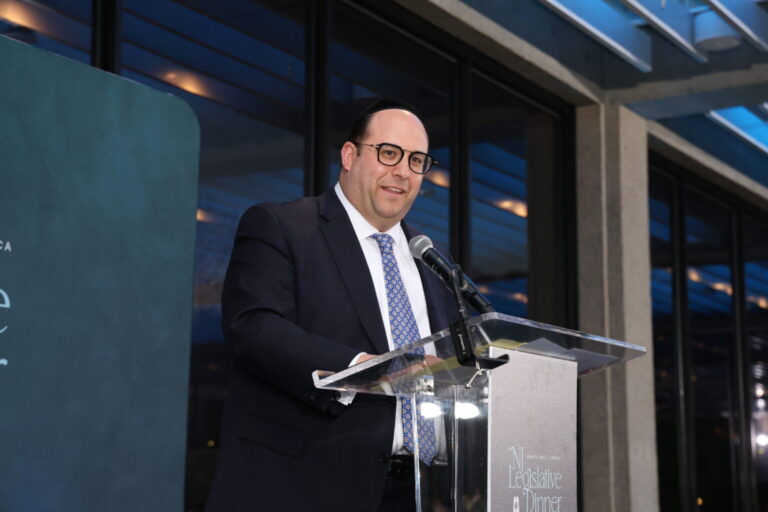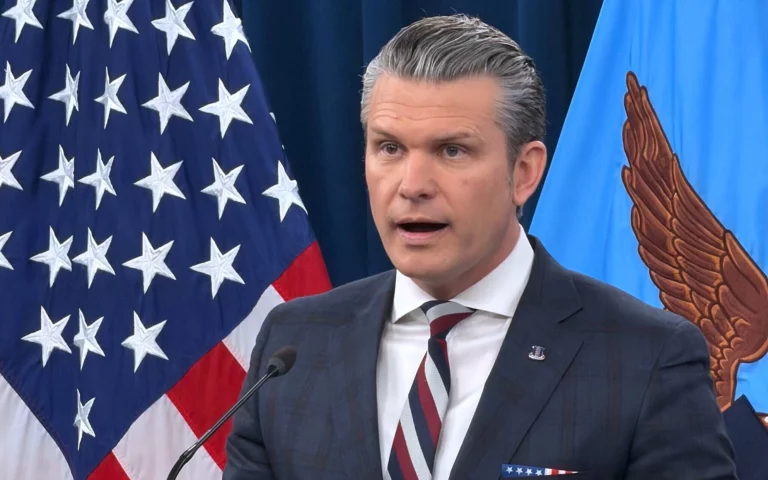In a Jerusalem Post opinion piece, Dr. Jonathan Schorsch calls me a “clever fellow” whose “handwringing” over the hatred I’ve encountered aimed at Orthodox Jews is “somewhat posed, if not disingenuous.”
Dr. Schorsch can be easily disabused of his first assertion by perusing my high school limudei chol records, or by consulting my wife and children, who can regale him of all manner of dumb things I’ve said and done (but who care for me, I hope, all the same).
As to the second charge, I assure him that I am sincerely pained by my observations.
Dr. Schorsch quickly moves to his real point, the contention that Orthodox Jews are themselves the cause of the hatred aimed at them, because they lack sufficient ahavas Yisrael. He cites personal experiences of Orthodox Jews insulting him and the Orthodox refusal to accept the Jewish legitimacy of non-Orthodox theologies.
The latter, of course, has nothing to do with ahavas Yisrael. Loving other Jews doesn’t mean embracing everything they may embrace. The very essence of Orthodox conviction is the rejection of changes to the Jewish religious mandate, like those changes embraced, to one or another degree, by non-Orthodox movements. So there is no crime in, and hence no apology for, Orthodox belief. That, though, should not (and in the vast majority of Orthodox Jews does not) in any way affect how we Orthodox view non-Orthodox Jews.
Dr. Schorsch, as a committed non-Orthodox Jew, does not likely consider the unabashedly atheistic “Humanistic Judaism” philosophy to be a legitimate form of Judaism. And if not, it must trouble him that rabbis of that movement seek to redefine Judaism in atheistic terms. Does he, though, hate Jews who, out of unfamiliarity with the Jewish heritage, pay dues to that group? I would certainly hope not.
How, Dr. Schorsch asks, can anyone possibly not take it personally when his or her theological beliefs are rejected? Simple. All that is needed is good will, and respect for the deep-seated convictions of others.
But some of what Dr. Schorsch recounts is deeply disturbing. If, indeed, Orthodox Jews seized on the fact that his father is a chancellor emeritus of the Jewish Theological Seminary to berate Dr. Schorsch, that was uncouth, indeed downright rude. And if, indeed, one of his woman friends was assaulted by haredim for carrying a sefer Torah, all I can say is that haredi leaders have explicitly condemned and forbidden any such reactions to even intentionally provocative public displays of that sort.
Ahavas Yisrael, though, is very much an Orthodox ideal. It is a mandate my wife and I have instilled (boruch Hashem, successfully, I think) in our children, and one that I stressed, over nearly two decades as a mechanech, to the hundreds of students I was so fortunate to teach (and learn from).
Dr. Schorsch may think it lacking from the larger Orthodox world, but he is wrong.
For example, take Chai Lifeline, which cares for young Jewish cancer patients and their families, regardless of what prefix the beneficiaries may place before “Jew” in their self-description. Or the famed “Satmar Ladies,” who minister to the needs of all Jewish patients in New York area hospitals. And those are but two of the better known of many such chesed organizations under Orthodox auspices.
Then there is the world of Jewish outreach. The very existence of dozens of groups helping Jews interact with their religious heritage should say it all. The concern of the “givers” in these programs transcends any and all denominational lines. A participant who remains a staunch member of a Reform or Conservative congregation is studied with, invited and cared about as much as any belonging to an Orthodox shul or to none at all. It would be exceedingly odd for Jews to be so determined to share what they treasure with other Jews they don’t care for.
And then there are the many “community kollelim” that exist to engage in Torah study not only in the traditional kollel mode of chavrusos and chaburos but which pointedly set aside considerable time for members and their wives to interact and study with men and women from the larger local community – again, without regard to denominational affiliations.
Then there are things like the Chofetz Chaim Heritage Foundation, which has brought unprecedented focus to the importance of “bein odom li’chaveiro” ideals, and the remarkable “Inspired” films, whose entire existence is born of a desire to encourage Orthodox Jews to care about their non-Orthodox brothers and sisters. That the films have drawn large Orthodox audiences in many cities clearly indicates a concern in the Orthodox community for Jews who are not part of it. As do the themes of ahavas Yisrael that are mainstays of lectures by popular Orthodox speakers like Rabbi Paysach Krohn and Rabbi Yissocher Frand, whose audiences sometimes number in the thousands.
Nor should anyone forget Partners in Torah, the celebrated project of Torah Umesorah that matches up Orthodox and non-Orthodox Jewish men and women to study Torah by phone. My wife’s partner in Torah lives in Arizona, is intermarried and belongs to a Conservative temple. My Chassidische colleague’s lives in Poughkeepsie and is of a similar background. At my daughter’s recent chasuna, her new mother-in-law, who is from Los Angeles and not Orthodox, got to see her own Partner in Torah, from Lakewood, New Jersey, a young woman who made a long trip just to be at the wedding and dance with the Jewish woman she has been studying with for years. It was a festive sight to behold. Scores of frum Jews are studying with equal numbers of non-Orthodox Jews through this wonderful project.
Orthodox organizations, both in America and Israel, offer Orthodox and non-Orthodox Jews alike the benefits of an array of projects, services and educational opportunities. On the local level, practically every Jewish community has an Orthodox chesed group, whose goal it is to assist Jews in need – any Jews in need; likewise, a chevra kadisha, which prepares the Jewish deceased – regardless of his or her affiliation during life – for Jewish burial.
Even a quick look at any of countless articles in the Orthodox media calling on readers to reach out to and care about all their fellow Jews – or a quick listen to Orthodox-produced audiotapes and CDs for children – readily evidences the prominence given to the promotion of good will toward fellow Jews.
So to Dr. Schorsch I say: I hope you will come to realize how embarrassed and pained most Orthodox Jews are by reports like yours of alleged boorish behavior by some Orthodox Jews. And that you will realize that ahavas Yisrael is in fact a deep conviction in the larger Orthodox world.
I hope, too, that you will consider an open invitation to, at your convenience, grace my family’s Sabbath table with the presence of you and yours. I assure you that the experience will be filled only with smiles (and wholly sincere ones), song, friendly conversation, words of Torah and ahavas Yisrael.
© 2007 AM ECHAD RESOURCES
[Rabbi Shafran is director of public affairs for Agudath Israel of America.]











12 Responses
Now is pirkei avos time:
“Who is full of wisdom? The one who learns from ALL people”. we can learn correct and incorrect attitudes and behaviors, there is always a thread of chochma in everyone.
The Town Crier Says:
“even democrats”
yes TTC even democrats – from democrats we can learn how NOT to do things
The Brisker Rav is reported 2 have said;”anyone who says he has ahavas yisroel I know 3 things 1)he hates the R’B’shel olam 2)he hates frum yidden 3)he hates the torah….about his ahavas yisroel I don’t know”
shmeel
That makes no sense, probably taken out of content. What did the Brisker Rav say before and after this statement….,
in order words what or to who was he responding.
shmeel: if that’s the only part of the quote, then it’s sheker to attribute it to the Brisker Rav. You certainly shouldn’t use quotation marks when you paraphrase (at best). Give the context and explanation and provide your source because it’s not in any of his writings.
The quote from the Brisker Rav does not sound like it ever came from him. Who “reported” this? In general, anything a godol actually(!!!) says must be understood in the light of the circumstances and the context in which it was said. Vague “It was reported” statements have zero validity.
Let’s try quoting another godol:
When someone reportedly told the Chasam Sofer zt”l, that a certain Rav was telling over his Torah without giving credit to the Chasam Sofer, he replied, ” I’m not bothered by people repeating my Torah without accreditation, I’m concerned more about people repeating things in my name that I never said”
Derech Eretz Kodmo la Torah!
Unfortunately,many young men take their Torah learning as a badge to look down on others,even to the point of not greeting other people they deem beneath their dignity. They have not learned from the talmidim of Rabi Akiva,z.t.l.
Ve-Ohavto Le Ray-acha Komocho. Shalom al Ysroel!
I liked this piece, but I don’t think a guy like Schorsch will be convinced by the kiruv oriented proofs. I can see Schorsch formulating his response in his head now: “yea, but that’s just because you guys are evangelical. When your kiruv doesn’t work, you act like hating fundamentalists.” I think Shafran bringing in the Satmar ladies, the CCHF, the media, and Chai Lifeline was an ingenious touch.
By the way, why do we only question stam people quoting from the gedolim we don’t want to hear? Question all or don’t question. “Regardless of what you hear quoted in my name, do not believe it unless I have told it to you personally.” –R’ Yitzchak Hutner (R’ Hillel Goldberg, Between Berlin and Slobodka, p. 63) By the way, I have a huge kasher on this quote…can you guess what it is?
“Regardless of what you hear quoted in my name, do not believe it unless I have told it to you personally.” –R’ Yitzchak Hutner (R’ Hillel Goldberg, Between Berlin and Slobodka, p. 63)
Did Mr Goldberg hear this directly from R’ Hutner? Even if he did, I didn’t! I Don’t believe it! (Or maybe now I should!!???)
Why is it that some people have to use every opportunity they have to put down kollel yungeleit. It couldn’t be sinas chinam or a sense of guilt, could it?
Proud Guy’s comment is, at best, lashon hara, and that is only if it is true. It is also likely to be considered mevaze talmidei chachomim, which is like an apikoros. We are obligated to give honor to those who study torah, not to be busy pointing out their possible faults. The Chofetz Chaim (Rech. 7:2) writes how we must attach ourselves to them in every way possible and not to say things that lessen their honor in any way. It is also “avon chamur meod” to be quiet about such things (Aseh 8 BM”C 10). That is what caused a worm in the ear of R’ Elazar brebi Shimon (B”M 84b). Maybe this is what a statement like the one quoted from the Brisker Rav could be refering to.